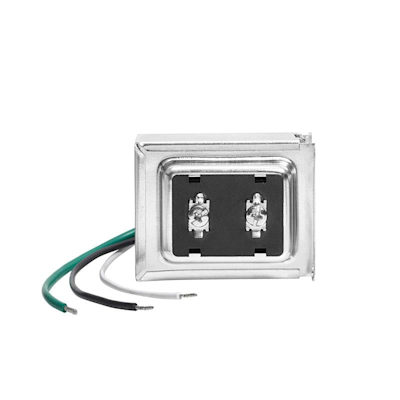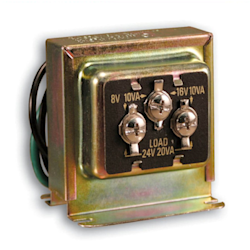Troubleshooting power for hardwired doorbells
Learn how to troubleshoot power issues for hardwired Ring doorbells.
You might be experiencing a power issue if you notice:
- Your hardwired doorbell doesn't power on when connected to a compatible power source.
- Your doorbell loses power at night or after the button is pressed.
- Your in-home chime does not ring, continuously or spontaneously rings, buzzes or hums, or has other issues.
- Power-intensive features like Package Detection and Bird’s Eye View can’t be toggled on in the Ring app.
- A poor power rating shown in the Ring app.
Chime compatibility
Make sure you are using an in-home chime that is compatible with your Ring doorbell. If your in-home chime is not compatible, you can choose to bypass and use a Ring Chime.
Learn more about compatible in-home chimes.
Wiring
Make sure you secure all wires under the correct terminal screws. Then, double check your work against the hardwiring instructions for your device.
Learn more about wiring your Ring doorbell.
Checking your wire gauge
Use 16- to 20-gauge wire for your Ring doorbell. Wires that are too thin or too thick might not deliver enough power to your Ring device.
Learn more about wire gauge sizing.
Power supply
Your hardwired Ring doorbell needs the right power source to work safely. You can use either:
- A compatible alternating current (AC) transformer.
If your current transformer doesn't meet your doorbell's power needs, you will need to install a new one. The Ring Hardwired Transformer offers 16 VAC, 30 VA of power.
Using the wrong power rating for your transformer, in-home chime, or Ring doorbell can:
- Damage your devices.
- Stop your in-home chime from working properly.
Make sure you check the power ratings match before installation.
Important: Using lighting transformers or other power sources that aren't Ring-approved DC power supplies might damage your device.
Learn more about compatible power sources for hardwired devices.
Understanding how much power your Ring doorbell needs
The amount of power needed can vary based on how many doorbells and chimes are connected to a single transformer, what features the doorbell offers, and other factors.
- If you have multiple hardwired Ring doorbells connected to a single transformer, you might need a transformer with a higher volt-amp (VA) rating.
- Some features, like Package Detection and Bird’s Eye View, need more power to work. You might need a transformer with more power (higher VA rating) to activate this feature in the Ring app.
Doorbell type | Voltage needed | VA (Volt-Ampere) rating |
|---|---|---|
Wired | 16-24 VAC | 10-40 VA |
Battery-powered | 8-24 VAC | 5-40 VA |
Multiple doorbells | 16 VAC | 30 VA |
Locating your transformer
Check your transformer for the correct power rating. Find the voltage (V) and volt-amp (VA) numbers on the transformer. Compare these numbers with what your doorbell and in-home chime need.
Important! Turn off power at the circuit breaker before examining your wiring.
Look for a small metal box called a transformer. You'll often find it away from your in-home chime in places like:
- Garages
- Basements
- Attics
- Closets
If your transformer has three terminal screws, there will be labels for each pairing or combination to show what the resulting volt and volt-amp rating would be.
Examples of doorbell transformers
Ring Hardwired Transformer |  |
Tri-volt doorbell transformer |  |
